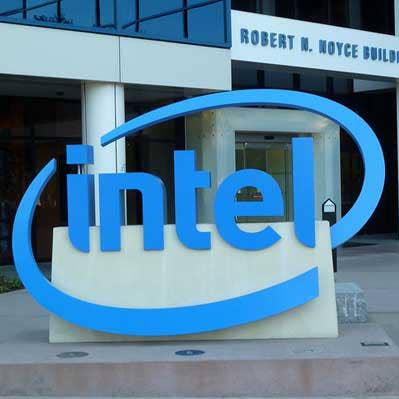Intel Cuts Prices Of 2nd-Gen Xeon Scalable CPUs With High Memory Capacity
'I think a lot of what's going on with Intel is in response to what AMD's moves are,' one Intel partner says of the chipmaker's latest price cuts, which take off as much as 54 percent of the price for Intel's second-generation Xeon Scalable processors with high memory capacity.

Intel is cutting the prices of its second-generation Xeon Scalable processors with high memory capacity by as much as 54 percent and discontinuing Cascade Lake processors with medium memory capacity.
An Intel spokesperson told CRN that the Santa Clara, Calif.-based company decided to discontinue the Xeon M-series processors, which have a 2 TB memory capacity, and lower the prices of the Xeon L-series processors, which have a 4.5 TB memory capacity, in response to customer feedback. The product listings on Intel's ARK database are expected to reflect the pricing changes in a few days.
[Related: Next For AMD In The Data Center: Tighter EPYC-Radeon Integration]
A product change notification issued by Intel Thursday morning characterized the move as an "effort to simplify [the company's] Intel Xeon Scalable Platform CPU portfolio and to deliver more value to the market." The last day customers can order the Xeon M-series processors is May 22.
Intel is pitching the change as good news, with the company's most expensive Cascade Lake processors receiving a significant cut in recommended customer pricing. This means the L-series processors will now have the same pricing as the now-discontinued M-series parts.
"It's a fairly significant cost savings," the Intel spokesperson said.
The Xeon M-series processors consisted of the Xeon Platinum 8280M, Xeon Platinum 8276M, Xeon Platinum 8260M, Xeon Gold 6240M, Xeon Gold 6238M and Xeon Gold 5215M.
The Xeon L-series have corresponding processors and will receive the following price cuts: Xeon Platinum 8280L (27 percent cut, new price $13,012), Xeon Platinum 8276L (29 percent cut, new price $11,722), Xeon Platinum 8260L (39 percent cut, new price $7,705), Xeon Gold 6240L (47 percent cut, new price $5,448) and Xeon Gold 5215L (54 percent cut, new price $4,224). The Xeon Gold 6238L will cost $4,615, but the extent of the price cut is not known because the original pricing was not available.
This is the second time Intel has made price cut to processors in the last four months. In October, the company announced it was slashing the prices of its next-generation Core i9 X-series and Xeon W processors by up to nearly 50 percent over the previous generation. At the same time, the company cut the prices of its ninth-generation Core F-series processors by up to 20 percent over corresponding parts that come with integrated graphics.
Dominic Daninger, vice president of engineering at Nor-Tech, a high-performance computing system integrator based in Burnsville, Minn., said the price cuts of the Xeon L-series processors is likely a recognition of the competitive pricing and performance of AMD's EPYC Rome processors.
More specifically, he said, it could have to do with the fact that AMD doesn't charge a premium for extra memory capacity while Intel does.
"I think a lot of what's going on with Intel is in response to what AMD's moves are," Daninger said.
Before the latest price cuts, for instance, the Xeon Platinum 8280L cost an extra $7,897 for the additional memory capacity over the standard Xeon Platinum 8280, which only supports up to 1 TB in memory. Now the Xeon Platinum 9280L only costs an extra $3,003. Meanwhile, AMD's EPYC 7742 comes with 4 TB of memory capacity by default and for no additional cost.
With Intel's latest price cuts, Daninger sees the move as good news for partners.
"The price cuts will help. It just makes things more competitive," he said.
The move will also lower the barrier for Intel customers and partners who want to explore the company's Optane DC persistent memory at higher capacities, according to Daninger. He said use cases for Optane in the HPC are nascent, but some customers are starting to explore the technology.
"It's just a matter of time until Intel runs into someone with massive amounts of data," he said. "I'm sure in another six months we'll have production users for that for some percentage of the overall market."